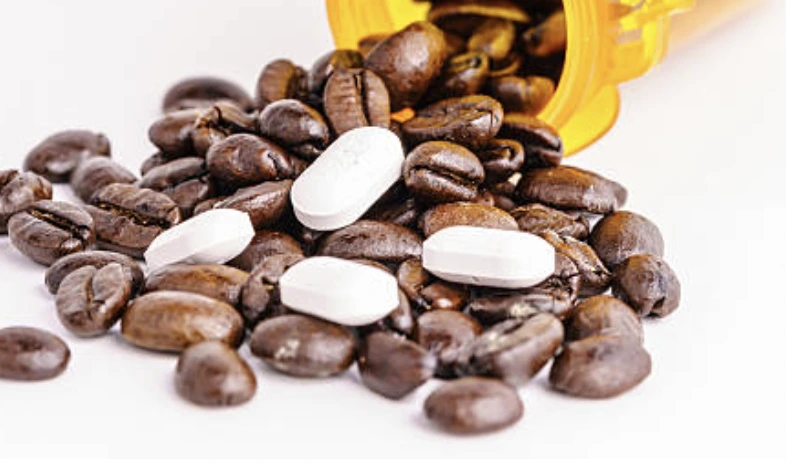
How Long Do Caffeine Pills Last?
Caffeine pills are a convenient way to get an energy boost and stay alert, especially for those who don’t enjoy coffee or tea. But how long do these pills actually last, and what should you expect in terms of their effects? Here’s a comprehensive guide to help you understand how long caffeine pills last, how they work, and what to consider for safe use.
1. How Do Caffeine Pills Work?
Caffeine pills work by delivering a concentrated dose of caffeine directly into the bloodstream after you swallow them. Like coffee, caffeine pills act as a stimulant on the central nervous system, increasing alertness, improving focus, and reducing fatigue. Typically, each pill contains 100-200 mg of caffeine, which is comparable to one or two cups of coffee.
Once ingested, caffeine is rapidly absorbed into your bloodstream, with peak effects felt within 30-60 minutes after taking the pill.
2. How Long Do the Effects of Caffeine Pills Last?
The duration of caffeine’s effects depends on several factors, including your metabolism, dosage, and tolerance. On average:
- Immediate Effects: The stimulating effects are noticeable within 30-60 minutes of ingestion.
- Peak Levels: Caffeine typically reaches peak levels in the blood around 1-2 hours after ingestion.
- Duration of Effects: Most people feel the effects for about 4-6 hours after taking a caffeine pill, although some effects may linger up to 8 hours, especially in those with slower metabolism.
3. What Influences How Long Caffeine Pills Last?
Several factors can influence the duration of caffeine’s effects from pills:
- Body Weight and Size: Smaller individuals or those with lower body weight may experience a stronger and longer-lasting effect from the same dosage compared to larger individuals.
- Metabolism: People with a faster metabolism may process caffeine more quickly, shortening its duration, while those with slower metabolisms may feel the effects for longer.
- Caffeine Tolerance: Frequent caffeine users may develop a tolerance, which reduces the stimulating effects and shortens the perceived duration.
- Food Intake: Taking caffeine pills on an empty stomach can lead to faster absorption and possibly stronger, shorter-lived effects. On the other hand, having a meal before or after may slow the absorption.
4. What Are the Potential Side Effects?
While caffeine pills are generally safe when taken within recommended doses, side effects may arise, especially if consumed in large amounts. Common side effects include:
- Jitters or Nervousness: High doses of caffeine can cause a jittery feeling, which might be uncomfortable.
- Increased Heart Rate: Caffeine is a stimulant, so it can lead to a temporary increase in heart rate.
- Insomnia: Taking caffeine pills too close to bedtime can disrupt sleep, as the stimulating effects may last several hours.
- Digestive Issues: Caffeine may irritate the stomach lining, particularly in higher doses or on an empty stomach.
It’s best to avoid taking caffeine pills late in the afternoon or evening to reduce the risk of insomnia and disturbed sleep.
5. How Long Do Caffeine Pills Stay in the System?
Even after the effects of caffeine have worn off, it remains in your system for a longer period. The half-life of caffeine (the time it takes for half the dose to be eliminated from your bloodstream) is around 3-5 hours for most people. This means if you take 200 mg of caffeine at 8 a.m., about 100 mg will still be in your system around 1-2 p.m. Complete elimination of caffeine can take up to 10 hours or more, depending on individual metabolism.
6. Recommended Dosage and Safety Tips
To use caffeine pills safely and effectively, here are some guidelines:
- Dosage: Most caffeine pills contain 100-200 mg of caffeine. For adults, up to 400 mg of caffeine per day is considered safe by health authorities. Exceeding this amount may increase the risk of side effects.
- Timing: Avoid taking caffeine pills within 6-8 hours of bedtime to prevent sleep disturbances.
- Stay Hydrated: Caffeine is a mild diuretic, so drink plenty of water throughout the day.
- Avoid Combining with Other Stimulants: Avoid combining caffeine pills with other stimulants, such as energy drinks or additional caffeine sources, as this can increase side effects.
7. Should You Use Caffeine Pills Regularly?
While caffeine pills can be a helpful tool for occasional boosts of energy or focus, using them too frequently may lead to dependence or tolerance. This can reduce their effectiveness over time, leading you to consume higher doses to feel the same effects, which can be dangerous.
Instead, try to save caffeine pills for when you truly need an extra boost, such as before a workout, during long drives, or before a challenging project. And consider getting adequate rest, eating a balanced diet, and staying hydrated to maintain natural energy levels.
Conclusion
Caffeine pills are a convenient way to stay alert and focused, with effects typically lasting 4-6 hours. However, individual factors like metabolism, body weight, and tolerance can affect how long the effects last and how your body processes caffeine. By understanding these factors and using caffeine pills responsibly, you can enjoy their benefits while minimizing any side effects.
Always consult a healthcare provider if you have any questions about caffeine intake, especially if you have health conditions or are on other medications.







































